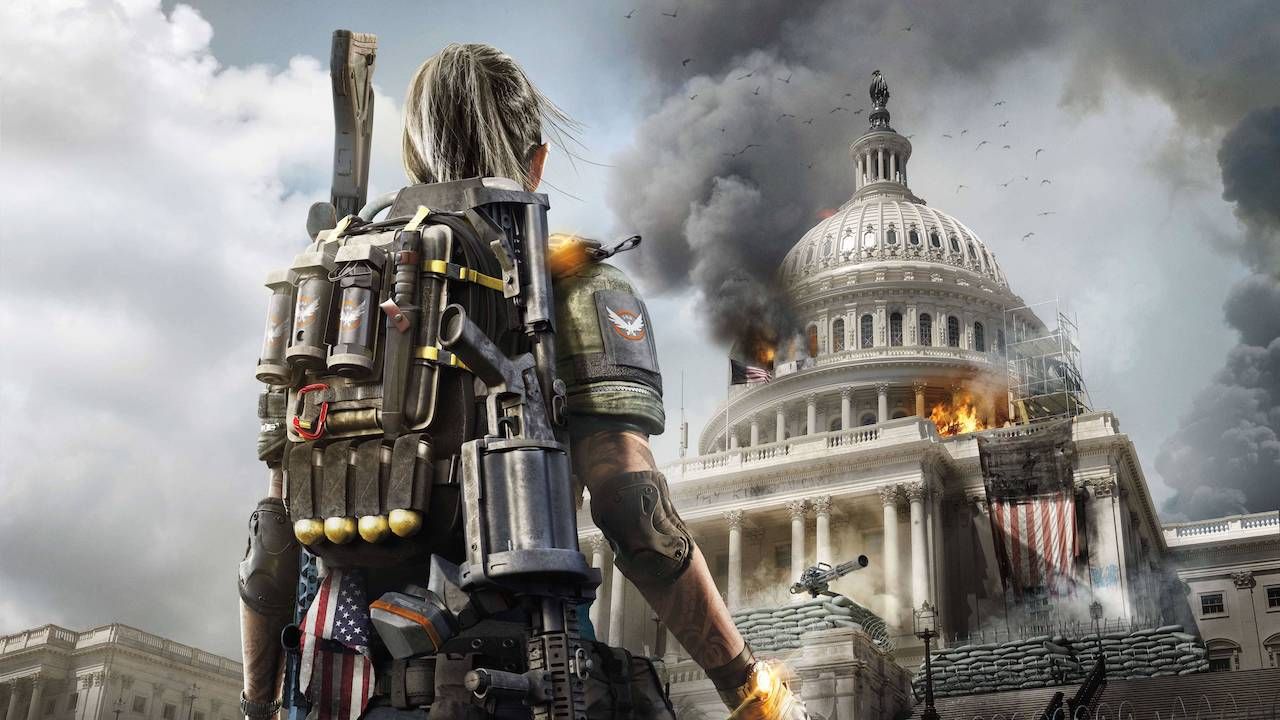Ubisoft attracted some attention during E3 2018 when key members behind the development of The Division 2 stated that their game would not have any political statements, despite taking place in a desolated Washington D.C., utilizing provocative imagery, and carrying the Tom Clancy name, an author who was often politically charged in his works. During Sweden Game Conference 2018, Ubisoft Massive COO Alf Condelius elaborated on this no-stance stance.
When speaking about the company's policy on political content, Condelius offers:
"It's a balance because we cannot be openly political in our games. So for example in The Division, it's a dystopian future and there's a lot of interpretations that it's something that we see the current society moving towards, but it's not - it's a fantasy.
It's a universe and a world that we created for people to explore how to be a good person in a slowly decaying world. But people like to put politics into that, and we back away from those interpretations as much as we can because we don't want to take a stance in current politics.
It's also bad for business, unfortunately, if you want the honest truth.... but it is interesting and it is a discussion that we have, and it's an ongoing discussion we have with our users, of course, because people want to put an interpretation into the universe that we create and they want to see their own reality in the fantasies that we give them, and the stories that the games are."
Condelius isn't exactly condoning the notion of purging political overtones in games, acknowledging that Ubisoft Massive's in-development project based on James Cameron's Avatar certainly has tinges of political issues. What Condelius does argue for, however, is "subtlety" over "straightforward" and explicit endorsements of viewpoints.
"James Cameron's vision with [Avatar] is that we need to do something as humans because we're going to destroy the world if we continue the way we are [going]. That is political, but we're not going out and saying you should vote for that person, or you should not do this; but it's a political statement of course, and we think that it's important, but we're not writing it on somebody's nose."
Ultimately, Ubisoft doesn't want their titles to have "political campaign messages" that promote one side or the other. The company wants their games to be "vague" and "undefined" enough for players to parse their own political beliefs into them without turning off people who may be adverse to a game due to any views it may espouse.
While it may be valid for a business wanting to avoid alienating any particular demographic, it comes across as Ubisoft wanting to have it both ways. This stance embodied by The Division 2 is trying to lure those looking for a game with something to say about society, while also trying to be accessible to the "keep politics out of my games" crowd—ultimately, this stance would alienate the former crowd more so.
Not every game has the luxury to be truly "neutral"—imagine a world where Bethesda's Wolfenstein II, a game where the player fights a Nazi regime that controls the world, carried the "undefined" stance of Ubisoft. In that respect, The Division 2 is reminiscent of Far Cry 5, which invited political discourse from its similar provocative and timely imagery, while veering away in the final product.
With The Division 2, Ubisoft is putting themselves in a "damned if you do, damned if you don't" situation where no audience will be totally satisfied.
While the game prepares for its March 15, 2019 release on PC, Xbox One, and PlayStation 4, you can revisit our E3 impressions of the gameplay here.

